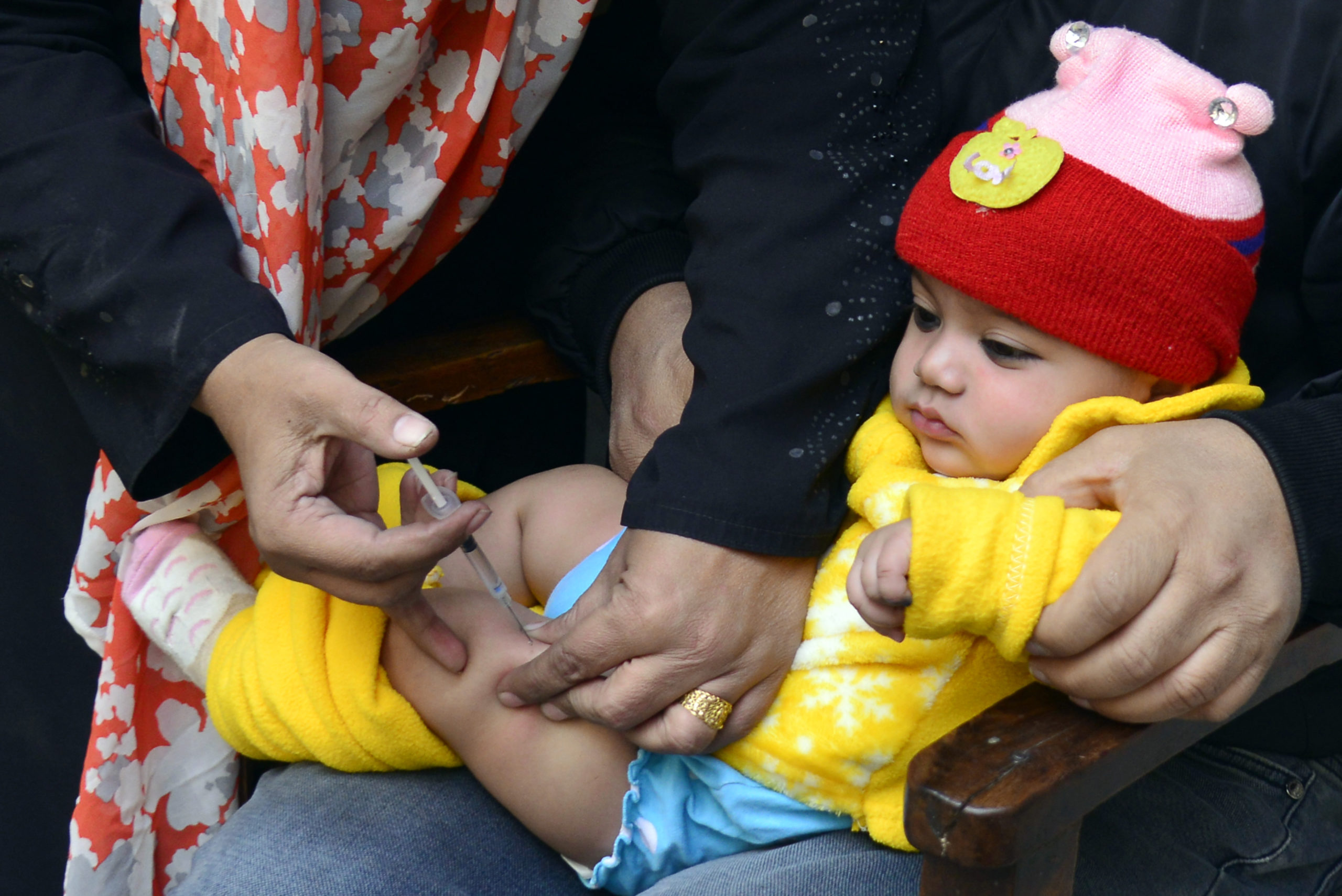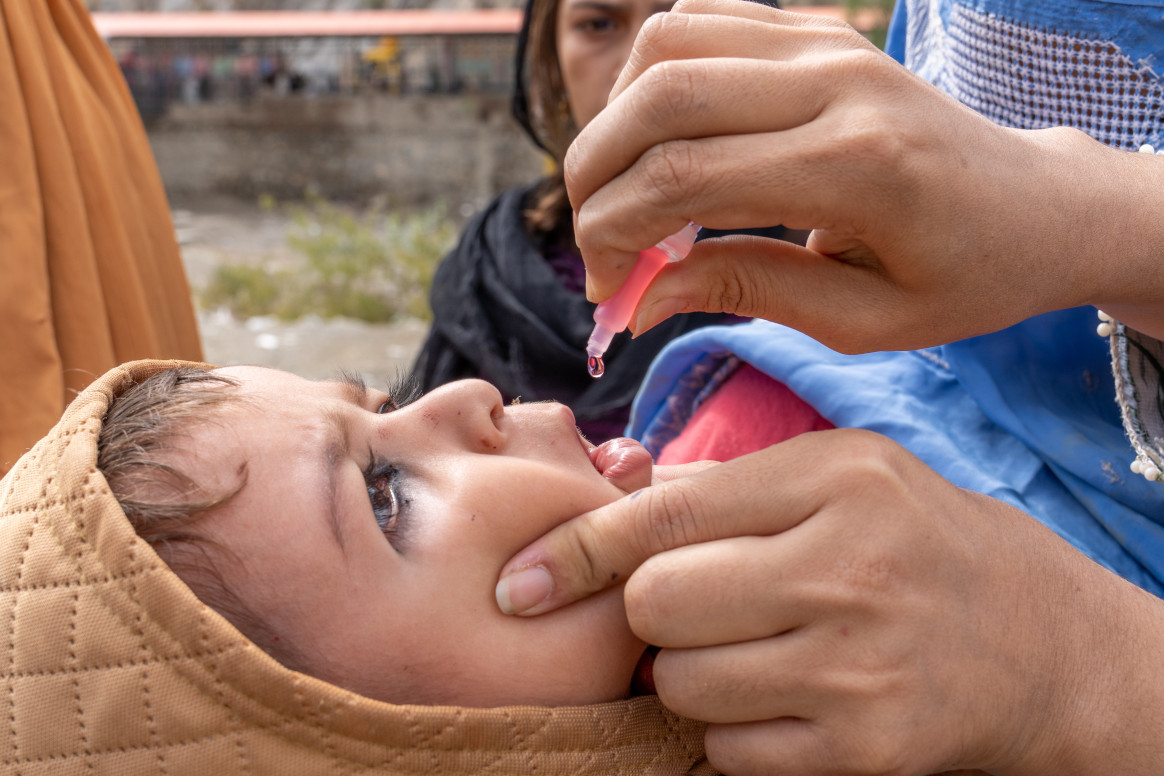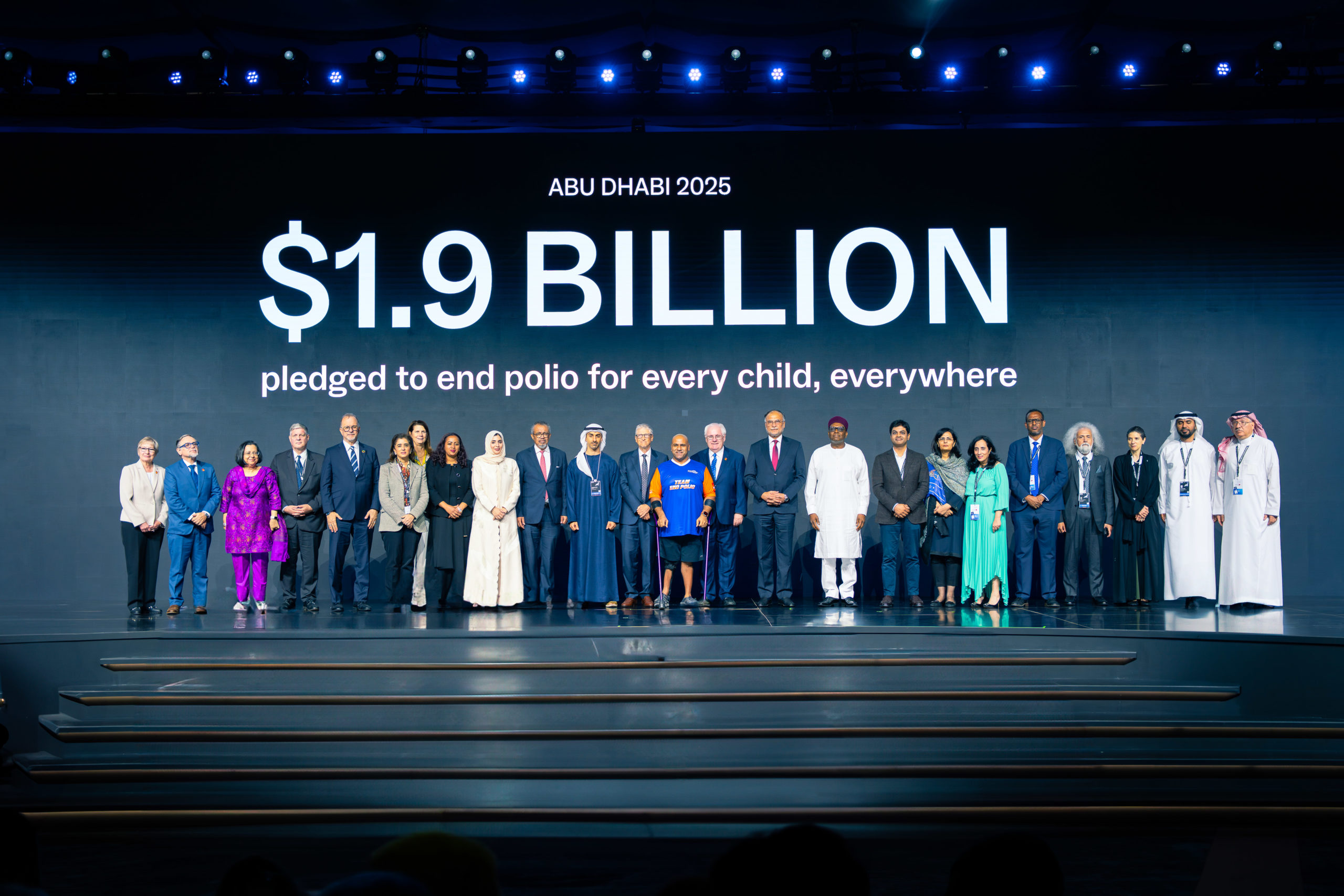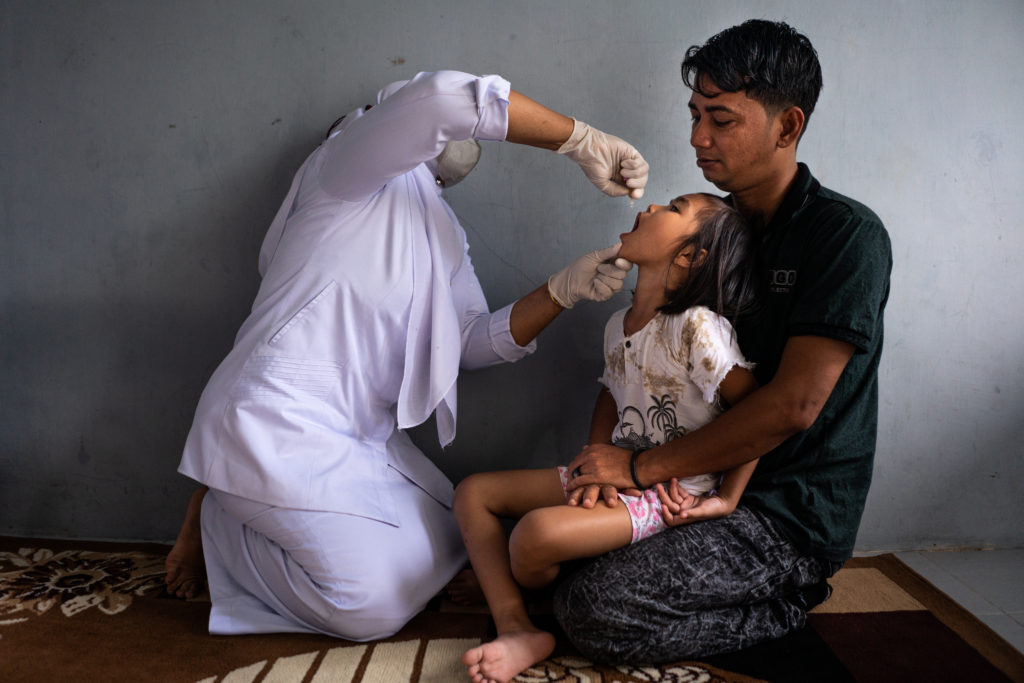
Jakarta, 21 November 2025 – Indonesia has officially ended its outbreak of poliovirus type 2, which arose from years of low polio immunization coverage. Nearly 60 million additional doses of polio vaccine were administered to children during the response.
Since June 2024, no poliovirus has been detected in children or the environment. Based on this progress, the World Health Organization (WHO) declared the outbreak closure on 19 November 2025.
“We have managed to stop the spread of polio in Indonesia thanks to the dedication of our health workers, commitment of parents and communities to get the children vaccinated and the support of our partners. Every child deserves protection. We must keep working to make sure polio does not return by ensuring all children receive complete age-appropriate polio immunizations,” said Minister of Health Budi Gunadi Sadikin. “We cannot be complacent, however. The risk of polio remains, especially with the gaps in immunization coverage in several provinces in Indonesia.”
“Indonesia’s success marks a vital step towards a polio-free world. It also reinforces the entire WHO Western Pacific Region’s ability to retain its polio-free status, an achievement we proudly reached 25 years ago,” noted Dr Saia Ma’u Piukala, WHO Regional Director for the Western Pacific. “I urge all our 38 countries and areas to remain vigilant. One day polio will be just a memory. Until then, we vaccinate.”
The outbreak began in October 2022, when the first confirmed case was reported in Aceh province. Over the next two years, cases appeared in the provinces of Banten, West Java, Central Java, East Java, North Maluku, Central Papua, Highland Papua and South Papua. The last confirmed cVDPV2 case was in South Papua on 27 June 2024.
Indonesia’s response included two rounds of nationwide polio campaigns using novel OPV-2 (nOPV2) vaccine between end of 2022 and the third trimester of 2024. In parallel, routine immunization coverage also improved, with the percentage of children receiving their second dose of inactivated polio vaccine (IPV) rising from 63% (1.9 million children) in 2023 to 73% (3.2 million children) in 2024.
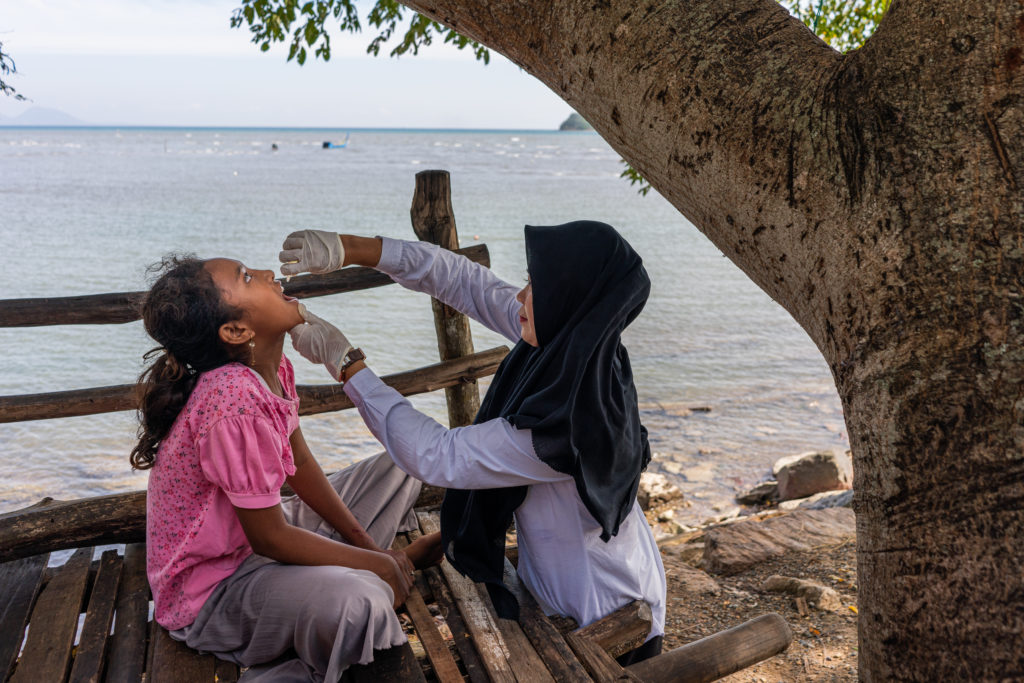
To accelerate the increase in IPV coverage, the Ministry of Health initiated the use of a hexavalent vaccine, which combines DPT-HB-Hib and IPV in a single injection. This vaccine provides protection against six diseases simultaneously: polio, diphtheria, pertussis, tetanus, hepatitis B, as well as pneumonia and meningitis caused by Haemophilus influenza type b infection. The use of the hexavalent vaccine is expected to reduce the number of injections children receive, save time and money for families, and accelerate the development of immunity to various diseases. This programme began in October 2025 in the provinces of Yogyakarta, West Nusa Tenggara (NTB), Bali and six provinces in Greater Papua, with nationwide rollout planned for the coming year.
Indonesia has made notable progress in the detection and investigation of Acute Flaccid Paralysis (AFP) among children. The country has improved the quality of AFP surveillance, leading to greater sensitivity in case detection and enhanced stool specimen adequacy.
In line with the Global Polio Eradication Initiative protocols, an independent global team assessed the quality of the polio outbreak response through the Outbreak Response Assessments (OBRA) in July 2023, December 2024 and June 2025. Based on the assessment, the team concluded Indonesia has implemented a high-quality response, a series of programme improvements as recommended by the OBRA team, and confirmed about the absence of new cases. Therefore, the WHO declared Indonesia to have met the criteria for outbreak closure, therefore the polio outbreak status could be closed.
This achievement is made possible with the collaboration of the Government of Indonesia with WHO, UNICEF, the United Nations Development Programme (UNDP), the Clinton Health Access Initiative (CHAI), and the Rotary International, underpinned by the dedication of health workers and communities across Indonesia.
UNICEF Indonesia Representative Maniza Zaman said, “This shows what is possible when communities, health workers and partners unite. We must keep up the momentum so every child receives the immunization they need to grow up healthy and free from polio and other vaccine-preventable diseases.”
With the end of the polio outbreak, the Ministry of Health reaffirms its commitment to keeping Indonesia polio-free through strengthening routine immunization, enhancing surveillance, cross-sectoral collaboration, and community support.
